SECOND EDITION
Starting
Your Career
as a
Freelance
Writer
BY MOIRA
ANDERSON ALLEN
2011 by Moira Allen
All rights reserved. Copyright under Berne Copyright Convention, Universal Copyright Convention, and Pan American Copyright Convention. No part of this book may be reproduced, stored in a retrieval system, or transmitted in any form, or by any means, electronic, mechanical, photocopying, recording or otherwise, without prior permission of the publisher.
15 14 13 12 11 5 4 3 2 1
Published by Allworth Press
An imprint of Allworth Communications, Inc.
10 East 23rd Street, New York, NY 10010.
Cover and interior design by Mary Belibasakis
Page composition/typography by Integra Software Services, Pvt., Ltd., Pondicherry, India
ISBN: 978-1-58115-760-4
eBook ISBN: 978-1-58115-777-2
Library of Congress Cataloging-in-Publication Data
Allen, Moira Anderson, 1959
Starting your career as a freelance writer/by Moira Anderson Allen. 2nd ed.
p. cm.
Includes bibliographical references and index.
ISBN 978-1-58115-760-4
1. AuthorshipVocational guidance. 2. AuthorshipMarketing. I. Title.
PN151.A49 2011
808.02023dc22
2010041776
Printed in Canada
Contents
Introduction
T his is the book I always wanted to write. As a writer and writing instructor, I searched in vain for a book that, to me, really answers the questions writers ask about launching a freelance career. A book that explains, in clear detail, what to do first, what to do next, what to do after that.
Its not that there arent any books on freelance writing on the market. Indeed, there are dozens. So what makes me think I can write one that covers the topic better than the rest?
The answer is: Because while Im a writer, Im not just a writer. Im also an editor. Ive sat on both sides of the desk. I know what its like to send out queries and submissions and wait, seemingly forever, for a responsebut I also know what its like to receive those queries and submissions, and what makes the good ones stand out from the rest. I know how to get an acceptance, and I also know what inspires me to give one.
In addition, having spent the past ten years as the editor and publisher of Writing-World.com, one of the worlds largest Web sites for writers, Ive answered literally hundreds of questions from writers about nearly every aspect of the writing business. Consequently, I know what questions writers ask about launching a successful career.
This book will guide you through the steps needed to start freelancing, and the steps needed to make your career successful. Whether you want to freelance as a sideline to your day job or while taking care of a home and family, or whether youre interested in going full-time and supporting yourself as a writer, this book will give you the tools for success.
You may want to read this book more than once as you progress in your career. But whether you read it once or a dozen times, there is one even more important thing you must do to become a successful writer. And that is: Put the book down and start writing!
Moira Allen
www.writing-world.com
PART I
Getting Started
 1
1 
So You Want to Be a Freelance Writer
W riting for publication is one of the most rewarding careers I can think of. It offers the opportunity for independence, creativity, and the occasional moment of fame. It allows you to speak to othersto entertain, to educate, to inspire, to motivate. It gives you a chance to earn an income by doing something you love. It may even give you a chance to change the world, or at least to improve one small corner of it, by giving your readers the tools they need to make their lives better. And theres nothing quite like the thrill of seeing your name in printnot just the first time, but every time!
Its also one of the easier careers to break into. You dont need any special qualifications to become a freelance writer: No special degrees or educational background, no certification, no business license, no permission. All you really need to do to get started is to sit down and write. Plus, thanks to the magic of the Internet, you can launch a successful writing career from just about anywhere in the world; youre no longer limited by problems of international language differences, postage, and currencies.
As a creative career, freelance writing can be far more lucrative than many other creative or artistic outlets. I enjoy crafts, for example, but when I have a choice between spending an hour making an item that might sell for  25, or spending two hours writing a how-to crafts article that might sell for
25, or spending two hours writing a how-to crafts article that might sell for  500, the decision is a no-brainer!
500, the decision is a no-brainer!
At the same time, freelance writing can be arduous and frustrating. It takes time to get a writing career launched, and even longer to become successful. The publishing marketplace has become an increasingly hostile environment for writers, as many publications are run by corporations that are interested only in the bottom line. Rejection is an inevitable part of this businessa part every writer must learn to accept gracefully.
And make no mistake: freelance writing is a business. Writing for publication isnt simply an exercise in creativity; it is a process of developing a product. The business side of freelancing includes determining what types of markets are available to you, and the types of materials you can sell to those markets. As a business, freelance writing also has its mundane sidehandling correspondence, keeping records and financial accounts, and so forth.
The good news is that a writing career is remarkably flexible. It adjusts to your hours, enabling you to invest as few or as many hours as you wish. Most freelancers begin as moonlighters, writing in their spare time while handling a day job or taking care of a family. Moonlighting gives you a chance to develop your skills, build a portfolio or client base, and build a nest egg against the day that you decide to go full-time. It also gives you a chance to determine, before you make that jump, whether this is the career for you. Indeed, many writers never do go full-time, but freelance as a way to supplement their regular income.
WHAT IS A FREELANCER?
A freelance writer is, by definition, a writer who is self-employed. As a freelancer, you do not draw a paycheck, but work independently, writing what you want and when you want, and offering your work to any market that will buy it. If you enter into a more formal relationship with a publisher (e.g., by becoming a columnist for a magazine), you may become an independent contractor for that publication, but you will not be an employee. This independence is what many freelancers cherish most about the business.
Beyond that, the term freelancer can be applied to a variety of writing activities and markets. This book covers the following types of freelance writing:
Writing for magazines. Nonfiction magazines represent the largest, most accessible, and highest-paying market for freelancers. There are literally thousands of print magazines that accept freelance material in the United States alone, and hundreds of other potential markets internationally. Though many predicted that the Internet would cause the death of print periodicals, readers still prefer themand advertisers still find them the best way to reach customers. Hence, they remain a strong market for writers. The downside of magazines is that they work months in advance; when you sell a piece to a magazine, you often wont see it in print for six months to a year.
Next page

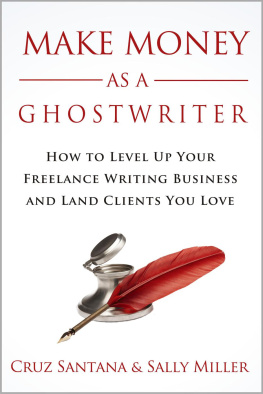
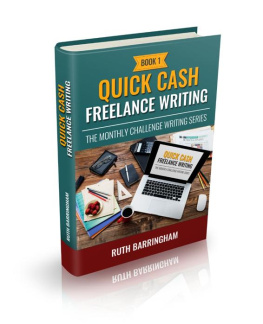
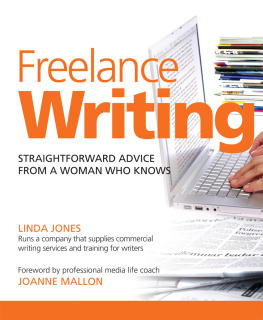
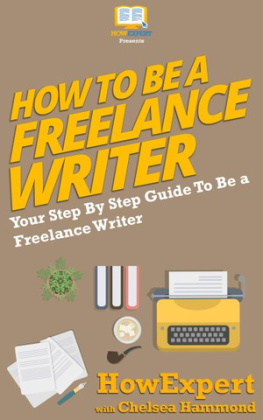
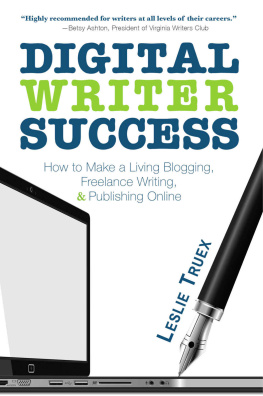
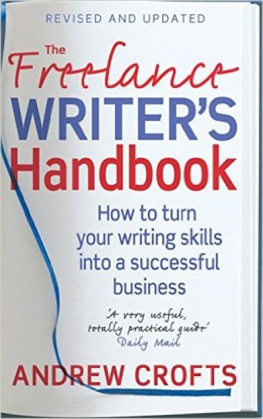

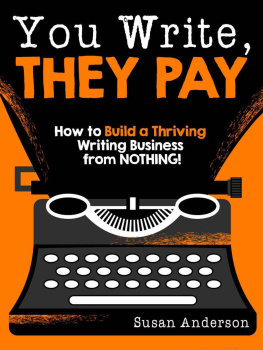
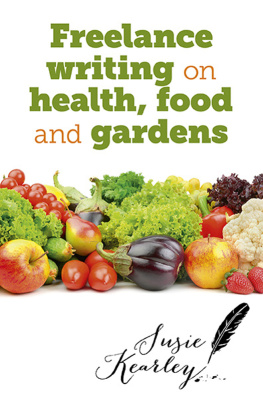
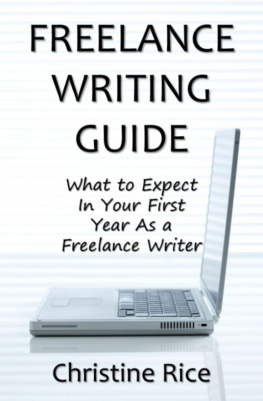
 1
1 
 25, or spending two hours writing a how-to crafts article that might sell for
25, or spending two hours writing a how-to crafts article that might sell for